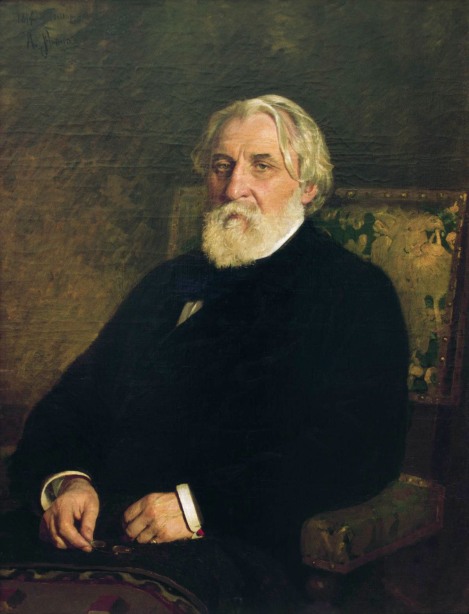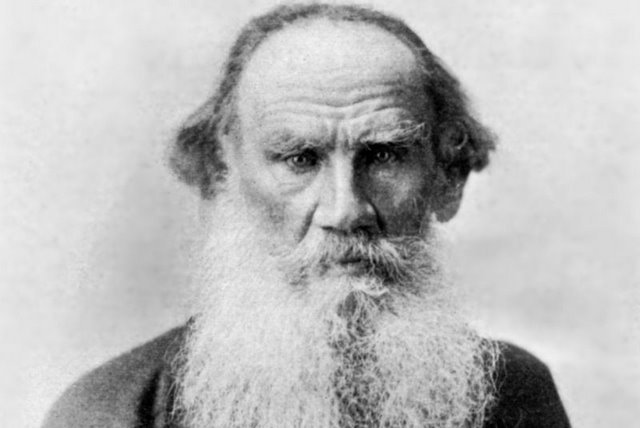The most accurate label for Romanticism would seem to be a revolt of the spirit. This revolution exceeded the mind and broke out into a socio-political reality in the form of the French revolution in Europe. This violent and destructive movement, however, does not epitomize the idealism felt by those artists that were labeled the Romantics. The romantic poet’s raison d’tre was passionate imagination and the idealism of the individual.
Romanticism represents to Bazarov in Fathers and Sons, an archaic philosophy that should be regarded with disdain and contempt. Bazarov is the radical nihilist that holds the present institutions of society corrupt and deserving of destruction. This position, while believed by Bazarov to be Romanticism’s antithesis, can be likened to the Romantic’s position of disgust of the mechanistic city life. Yet while the Romantics’ solution is to escape into the purifying powers of nature, Bazarov’s idée fixe is to change the present situation and not to escape. Though Bazarov advocate some kind of purifying action within society the Romantics repudiate society to find their bliss in nature.

Another aspect of Romanticism is passion. This passion usually was manifest in strong emotion in self-expression; sensitivity, sentimentality, melancholy, and the disdained lover are “airs” assumed by the Romantic. Bazarov, while basically unassuming and stolid, he nevertheless is driven by his ideology. While Bazarov might not share the Romantic’s passion, he does, however, share his drive.
The Romantics looked to the lost past and the exotic for, at least, their idiom of expression. The remote and mysterious is best represented in A Hero of Our Time‘s distinct locales: the midst of nature in “Bela,” the gothic and crepuscular in “Taman,” and the idyllic surroundings “Princess Mary.” Turgenev’s surroundings, in contrast, are realistic, not ideal or exotic. Nature does, however, remain omnipresent in Fathers though it is far from exotic and idyllic; bleak, barren fields, voided surroundings, and disease leave no room for the Elysian Fields. This stark contrast is evident between Pavel and Bazarov and their duel. All of the romantic and ideal notions of the former are annihilated when he is wounded in the leg. There is nothing romantic in the reality of the duel though there was in its conception — Pavel’s romanticism is, in affect, shattered.
While the Romantic sentiment was undoubtedly sincere at its outset, it went too far. This is most evident by the affected character of Lensky in Eugene Onegin. Lensky has assumed the romantic persona very much like Goethe’s young Werther. If his emotions are sincere one would never know for all the layers of fluff he has adopted from the real romantics. This romantic affectation assumes a different degree with the characters of Eugene Onegin and Pechorin. Withdrawn and melancholy, these imaginative Byronic heroes are more of a threat than the basically harmless Lensky and even Grushnitsky. These men are capable of shrewdly manipulating others for their personal amusement; this results in the deaths of Lensky and Grushnitsky who were both swept up by the romantic game that suddenly became all too real.
The Romantics were primarily artists with prodigious imaginations, imaginations that allowed them to grasp the Platonic form of Beauty and manipulate it to their creations on earth. This kind of power is overwhelming and could lead, which it most often did, to a solipsistic God complex. They are creators, seen by themselves as transcending the banal and mundane to form their own worlds. This becomes dangerous because the Romantic, like God, is beyond good and evil, i.e. amoral. Pechorin, creative victim of perpetual ennui, amuses himself by creating efficacious situations no matter what happens within. Onegin, while getting himself burned in the end, is also capable of this destructive creativity.
While Romanticism is considered passé and archaic by many, its influence transcends it chronological boundaries. It inspired the individual passion to succeed and showed the world that their is something beyond our everyday mundanity. While the Romantics are ridiculed by Bazarov and his followers, and can be taken too far, it was, and is, an integral element to the evolving world conception of Beauty. Keats is still correct: “Beauty is Truth, and Truth is Beauty / That is all yea know on earth, and all yea need to know.”
